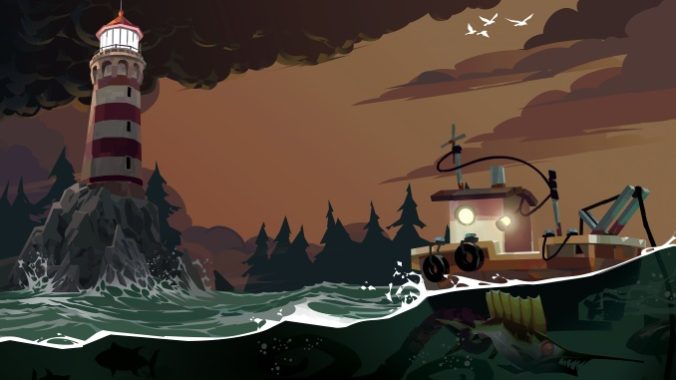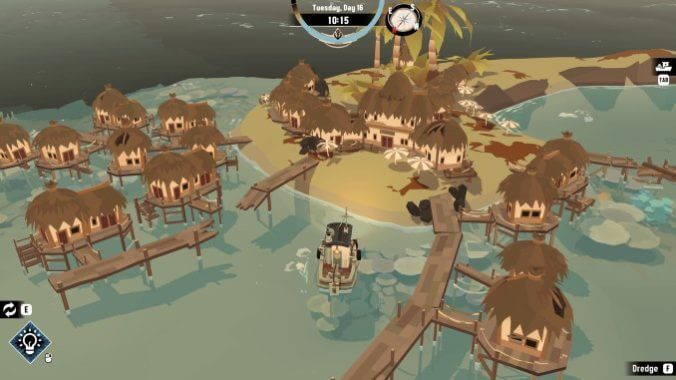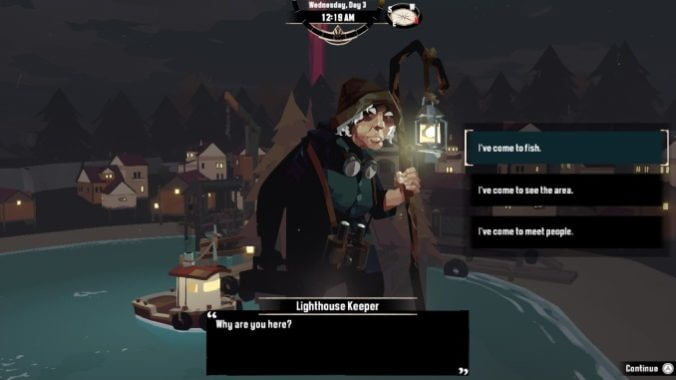Dredge Pulls Lovecraftian Horror Out of the Deep

Dredge consistently asks one question over its 10 or so hours: What are you willing to drag into the light of day to accomplish something? To accomplish anything? As a fisherman who washes up on the shore of the most obviously cursed archipelago this side of RuneScape and racks up a debt in no time, you’re quickly tasked with doing whatever it means to make ends meet and then some. Fish to your heart’s content, rummage through wreckages for supplies, bring back your haul to clear that debt, and you’ll eventually find that there are things that shouldn’t be surfaced out in those waters. Things whose presence there signals that everything isn’t well… and yet you dredge them up because how else are you going to get things done?
In Dredge, there’s very little consequence for doing the bad thing. It’s the default setting and just about the only mode of play, really. It’s the first notable thing about Dredge and one of the reasons I love it. The entirety of the game’s action is set against this morally fraught economy and this task to collect relics that seem primed to unearth something awful. And yet it is one of the sparse directions you’re given throughout the game and in fact the chief imperative you follow. The fisherman is not a bad person for what they, and you, through them, do. It’s just their job after all. But they are, like most of us, the unwitting participants in a system and way of life that encourages the worst, rather than the best, from us. And so even if the mutated monsters you fish out of the sea are harmful, even if the deliveries we sometimes finish harm folks, and even if our ultimate goal is ominous as hell, we do it.

None of that means that you aren’t capable of good. Much of the game’s sidequests, favors that you’ll do for people you come across in towns or just as you’re sailing around, are by essence helpful. The detours that you make at most of the four major regions in the game see the fisherman try to repair the broken state of this world as much as he can, assisting researchers trying to unravel the phenomena of the mutated marine biology or repairing broken families. If anything, I felt more compelled to do these quests because of the increasingly uneasy feeling completing the main quest was giving me. Dredge really revels in the kinds of dread it’s able to conjure and make you sit alongside.
